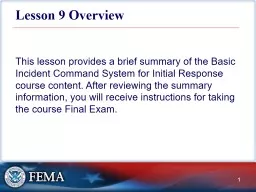PPT-Unit 4: Lesson 1 Making Every Contact Count: Providing Opportunistic Brief Advice and
Author : Princecharming | Published Date : 2022-08-04
Lesson 1a Recap Units 13 Lesson 1b Theoretical and Practical Context for Brief Interventions for Health Behaviour Change Making Every Contact Count Play your part
Presentation Embed Code
Download Presentation
Download Presentation The PPT/PDF document "Unit 4: Lesson 1 Making Every Contact ..." is the property of its rightful owner. Permission is granted to download and print the materials on this website for personal, non-commercial use only, and to display it on your personal computer provided you do not modify the materials and that you retain all copyright notices contained in the materials. By downloading content from our website, you accept the terms of this agreement.
Unit 4: Lesson 1 Making Every Contact Count: Providing Opportunistic Brief Advice and: Transcript
Download Rules Of Document
"Unit 4: Lesson 1 Making Every Contact Count: Providing Opportunistic Brief Advice and"The content belongs to its owner. You may download and print it for personal use, without modification, and keep all copyright notices. By downloading, you agree to these terms.
Related Documents














